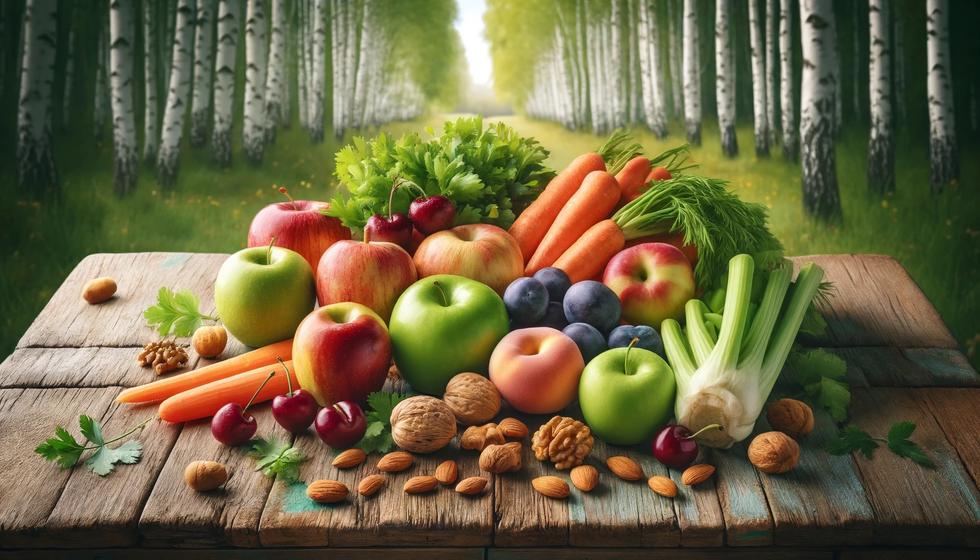Quick version
Approximately 70% of those allergic to birch pollen also experience cross-allergies to common foods such as fruits, nuts, and vegetables. These cross-reactions occur when the immune system mistakes certain food proteins for those found in birch pollen, which can lead to symptoms such as itching in the mouth and swollen lips. Common trigger foods include apples, hazelnuts, other nuts such as walnuts and almonds, and stone fruits like cherries and plums. Certain vegetables like celery and carrots can also cause reactions.
If you are allergic to birch pollen, be aware if symptoms worsen after eating and try to avoid these trigger foods to reduce your allergic reactions.
How Cross-Allergies Occur
Cross-allergies occur because the immune system mistakes proteins in certain foods for the allergenic proteins in birch pollen, leading to an incorrect reaction to these foods.
70% of All Birch Pollen Allergics Have Cross-Allergies
Among those who are allergic to birch pollen, as many as 70% also show reactions to various fruits, nuts, and vegetables. These reactions, known as cross-allergies, can include symptoms such as itching in the mouth and throat as well as swollen lips.
Common Foods That Birch Pollen Allergics Also React To
- Apples and hazelnuts are among the most common foods that people with birch pollen allergy react to.
- Other nuts such as walnuts and almonds, as well as stone fruits like cherries, plums, peaches, and apricots, can also cause issues.
- Certain vegetables like celery and carrots can also trigger cross-allergic reactions in individuals with birch pollen allergy.
This connection between pollen and food extends to other types of pollen such as grass pollen and mugwort pollen, which are also known to induce cross-allergies to specific foods.
If you are allergic to birch pollen, you should be alert to whether your allergy symptoms worsen after eating certain foods. By avoiding the foods that cause these cross-reactions, you can reduce your allergic symptoms.






















